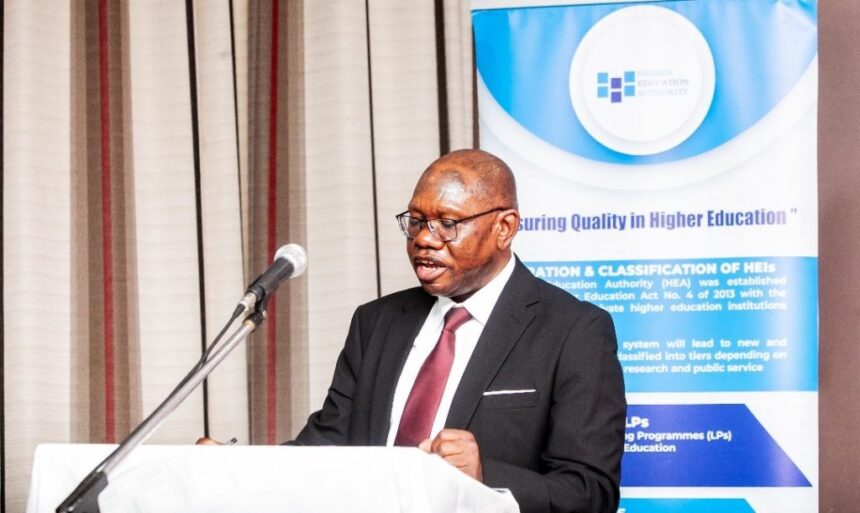The Higher Education Authority (HEA) has collected K10 million in annual student levies from higher education institutions as of the first quarter of 2025, according to Director General Professor Kazhila Chinsembu. However, despite the boost in revenue, the Authority continues to face significant challenges in fulfilling its regulatory mandate due to limited government funding and inadequate staffing.
Speaking during a recent engagement with the Parliamentary Committee on Education, Science and Technology, Prof Chinsembu outlined the financial pressures affecting the HEA’s ability to carry out quality assurance, accreditation, and oversight of higher education institutions across Zambia. He pointed out that while the increase in the student levy has provided much-needed supplementary funding, it is still not enough to meet the Authority’s full operational needs.
“The annual student levy was previously K4, but it was increased to K75,” Prof Chinsembu explained. “This has helped us raise K10 million so far, but the grant we receive from government remains insufficient for the scope of our responsibilities.”
The student levy is collected from registered higher learning institutions and contributes to funding regulatory activities such as institutional audits, curriculum reviews, and the enforcement of education standards. The increase in the levy was introduced as a strategic move to bolster the Authority’s financial base amidst growing demands for quality assurance in the higher education sector.
Despite the additional revenue, HEA’s staffing levels remain critically low, and the lack of personnel is hampering its ability to conduct site inspections, review institutional applications, and respond to complaints or emerging issues in the sector.
“We are currently operating with far fewer staff than required to oversee all registered higher education institutions in the country,” Prof Chinsembu said. “To ensure quality and compliance, we need more inspectors, analysts, and support staff—but without adequate funding, recruitment remains a challenge.”
He further urged the Parliamentary Committee to consider advocating for increased budgetary support to the HEA, highlighting that the quality of Zambia’s higher education system hinges on effective regulation and oversight. He warned that failure to invest in the Authority could undermine national development goals that rely on a skilled, educated workforce.
The committee acknowledged the concerns and pledged to relay the funding and staffing challenges to the Ministry of Finance and National Planning for possible consideration in future budget allocations.
With higher education playing an increasingly critical role in Zambia’s economic transformation agenda, the performance and capacity of regulatory bodies like the HEA are under the spotlight. As the number of universities and colleges grows, ensuring that institutions meet minimum standards of quality is essential for protecting students, preserving academic integrity, and aligning national education outputs with global benchmarks.
For now, the HEA continues to navigate financial constraints while striving to fulfill its mission—to safeguard the quality of higher education and ensure that Zambian graduates are equipped to compete on the global stage.






